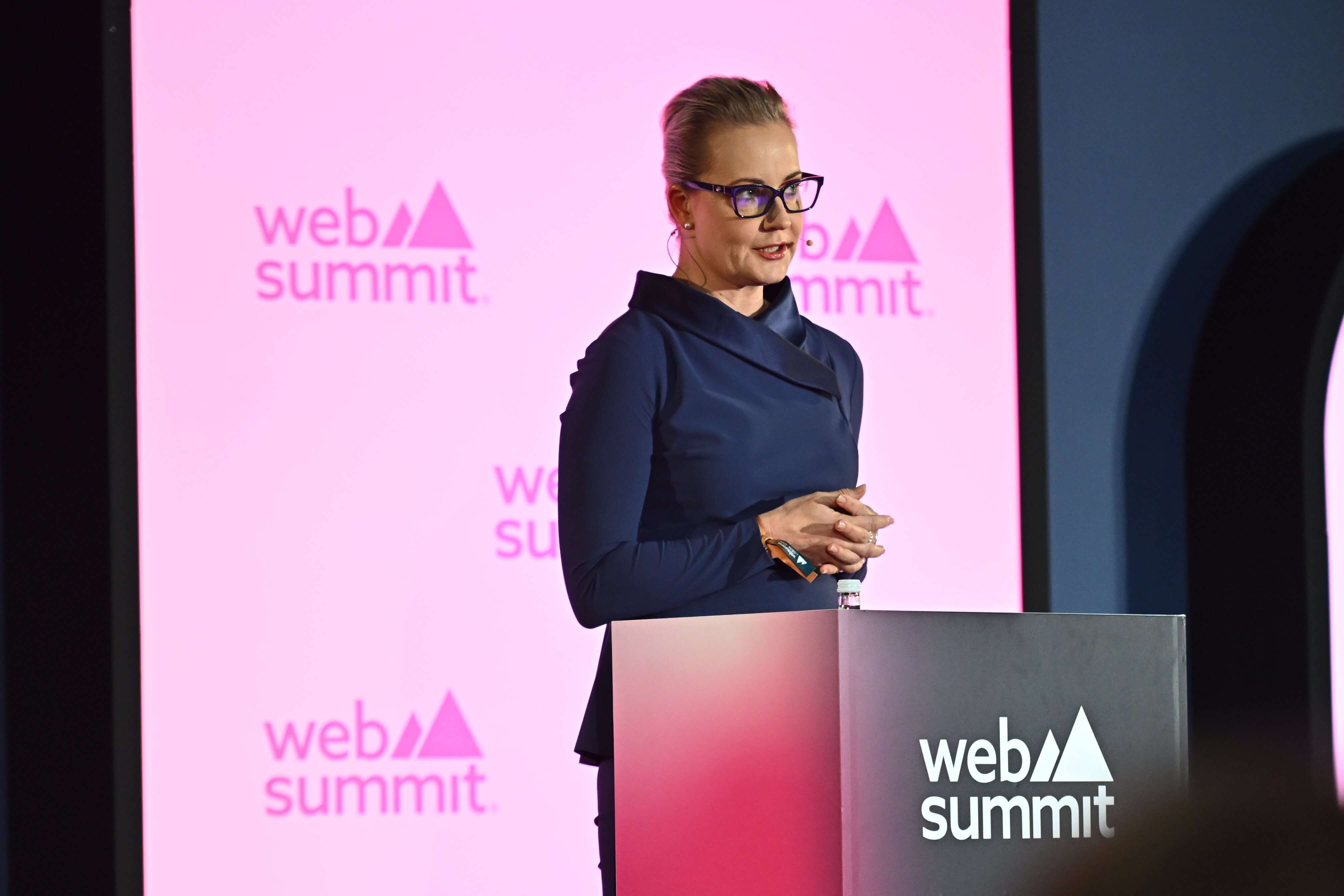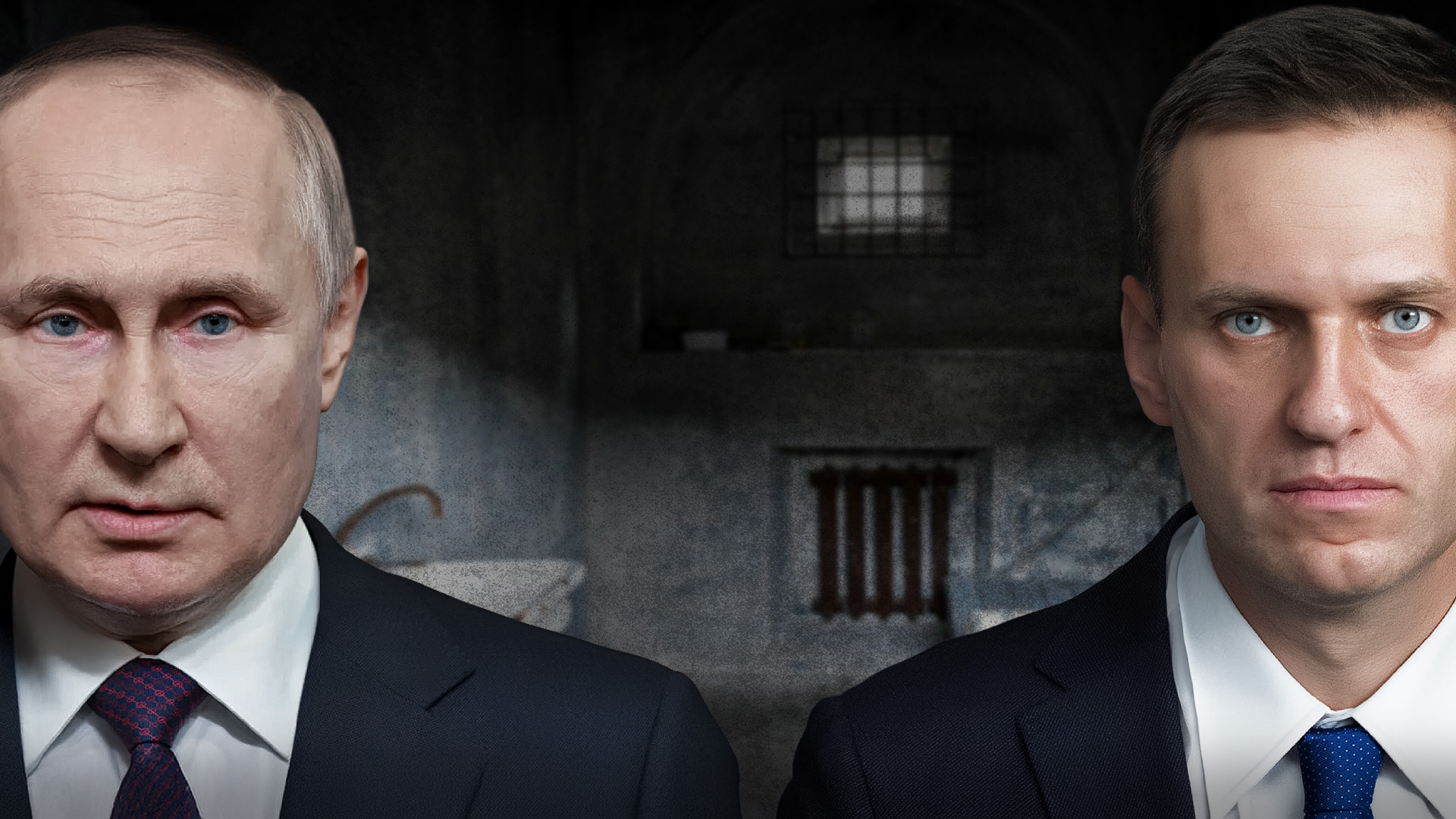News
Yulia Navalnaya Delivered an Extensive Speech at the Web Summit IT Conference

On November 12, Julia Navalnaya delivered a speech in Lisbon at the Web Summit, the largest technology conference. In her speech, Julia urged Western IT companies not to play into Putin's hands by restricting the work of independent Russian media and politicians on the Internet. Here is a full text of her speech:
Dear friends,
I’m really glad to be here with you today, but I have to admit—I’m incredibly nervous. This is my first time at a tech conference, and I’m surrounded by some of the brightest minds pushing our world forward. I wouldn’t have taken this stage if what I had to say wasn’t really important. As you know, progress in our world isn’t moving at the same speed for everyone.
In some places, it has even come to a standstill. In others, it feels like we’re going backwards. While technology in democratic countries makes life easier and more exciting, dictators have started using it to their own advantage—to control people’s minds and to destroy protests more effectively.
Of course, some people would prefer to keep politics and technology separate. But let’s be real—that’s not possible anymore. They’re already connected, whether we like it or not.
Today, the actions of tech industry leaders affect the lives of millions. Or even billions of people who rely on technology while living in unfree countries. Sometimes, it’s not only their futures at stake but their lives. I want to talk about the impact of tech leaders ignoring political realities, how we can work to change this, and what we can do together.
My life and work, and that of my husband, Alexei Navalny, are closely tied to Russia,
so I’ll be sharing examples from Russian experiences. But sadly, everything I’ll say applies to dozens of other countries as well—like Iran and Venezuela, China and Cameroon, Nicaragua and Uganda. This list is extensive.
***
September 16, 2021. Six in the morning.
The police and FSB, Putin’s secret service, arrive at the Moscow apartments of Apple and Google’s local branches. What’s going on? What do they want? They’re demanding that Google and Apple remove an app from their stores. They have a list of every employee working in these companies’ Russian offices and give an ultimatum: either the app is taken down, or these employees will be arrested.
What’s this app? It’s a Smart Voting app for the upcoming parliamentary elections,
which are set to begin the next day. It was developed by Alexei Navalny’s team. By then, Navalny had already been in prison for nearly a year, held in harsh, even torturous conditions. He and his team have been barred from running in the elections.
But from prison, he has set up tactical voting to help his supporters in each district back independent candidates. Anyone can download the app to get recommendations from his team on which candidates to support. The app contains nothing more than a list of these candidates. But to get the app removed, Putin’s regime resorts to direct threats, cornering Western companies by threatening hundreds of their employees—people who were just working in Russia and probably weren’t even that involved in politics.
Apple and Google give in. The app is removed. The election is rigged. No independent candidate makes it into parliament. Five months later, we realized why this was so important to Putin. He will launch a brutal war in Ukraine, and his puppet parliament will approve the invasion unanimously. Putin’s propaganda will then claim that the parliament represents the will of all Russians, that they all support the war.
I’ve shared this example to show how crucial it is for dictatorships to control technology—and how quickly they’ll go from online pressure to real-life threats, using any means necessary. This entire event was a painful lesson for tech companies working in Russia. But was that lesson learned?
Sadly, no.
***
Autumn 2024. Google and Apple stopped operating in Russia long ago. They have no offices or employees left there. No one’s knocking on their doors anymore. But Roskomnadzor, Russia’s internet censor, is still busy clearing the internet of anything independent or critical. Major Western platforms are blocked in Russia, so people can only access them and any honest information about the war, corruption, censorship, and human rights violations only through VPNs. And here’s what’s happening—right now, right in front of our eyes. In the past three months, Apple has removed 409 VPN apps from its store at Roskomnadzor’s demand. Just because the agency declared VPNs an “extremist” technology, the same way they labeled the Smart Voting app “extremist” three years ago.
Apple went along with the order. No one knocked on their door or made threats. Some lawyers in the California office saw the official document with a state seal and followed the order. It didn’t matter that it was censorship, limited freedom, or was illegal. The state seal was enough to make it happen. Unfortunately, I could give you dozens of examples like this.
Here’s a recent example. On August 16, the Russian government added my spokesperson, Kira Yarmysh, to the “extremists and terrorists” list. In Russia, this label means losing almost all civil rights, including having all bank accounts frozen. Kira left Russia long ago, so it doesn’t really affect her. But that same evening, PayPal also blocked her account—following Russia’s decision. Many of you know that Putin’s regime tries to make life difficult for its opponents, even abroad. But the fact that tech companies are actively helping might be news to you. And this issue isn’t just about Apple or PayPal, or even just about Russia.
This is a systemic problem. Dictators pass laws aimed at destroying civil rights. Tech companies follow these laws without asking questions. “But what else can we do?” say the lawyers of tech corporations. “If we want to work in a country, we must follow that country’s laws!” They don’t see room for discussion. A law is a law. It must be followed.
But of course, there is room for discussion. And I want to offer that discussion. Let me start with an analogy from another area—the fight against corruption. This area is very familiar to me because my husband, Alexei Navalny, who was killed by Putin in prison this year, became world-famous for his corruption investigations. Back in 1977, U.S. lawmakers passed the Foreign Corrupt Practices Act (FCPA). This law made it illegal for American companies to pay bribes outside the country or engage in any kind of corrupt activity with foreign officials, even if such practices were legal in those countries.
At the time, American society was shocked by the Watergate scandal and other major political corruption cases, including huge bribes that American corporations were paying worldwide to advance their interests. Society realized that if this was allowed, these corrupt practices would become common and acceptable, even within the country. Even though the FCPA made it harder for American companies to do business in countries where corruption was the norm, society decided that corruption should not become an accepted practice—no double standards.
So why, in 2024, do we allow double standards in the tech industry? Can we imagine acts of censorship without court decisions, just based on letters from government agencies, in any Western country? Can we imagine tech platforms removing apps or content just because someone in the government didn’t like it? Probably not. So why do they behave this way, humoring dictators?
***
I don’t think there’s evil intent here. It’s more about laziness and unwillingness to understand. The phrase “following local laws, no matter what they are” is very easy to hide behind; it’s convenient. But it doesn’t work. Local laws can demand stoning a woman for showing her face, or sending someone to prison for 15 years just for calling a war a crime.
So, we need a different approach. And I’ll take the liberty to suggest three simple principles.
Following them may not immediately change the situation, but at least it would be a good direction to strive for.
The first principle: Put human rights first. Put the interests of users above the interests of governments. Think about the consequences of decisions for customers and protect them.
There are universal principles in the Universal Declaration of Human Rights that cannot be violated. Legal compliance cannot justify violating human rights.
The second principle: Remember that what dictatorships call “legal” isn’t always lawful. Remember that in dictatorships, what’s written on paper is not necessarily followed. Analyze actual law enforcement practices and base decisions on that. For example, many democratic countries have laws about storing personal data on servers within the country to protect it. Dictators use the same law to identify dissenters and carry out repression.
The third principle: Create a mechanism for dialogue and consultation with civil society. There are many national and international NGOs that protect citizens’ rights in the digital space. They have a lot of knowledge about how dictators misuse modern tools for repression and how to prevent this. Sometimes, just asking the experts can prevent tragic consequences.
Please raise your hands if you’ve come here from democratic countries, if you live in a free world. The majority of people, obviously. That’s not surprising. Technology develops better in a free world. There’s a bigger market for new technologies in a free world. In the end, it’s in your best interest for everyone here, all the leaders in the IT sector, that there are fewer dictatorships in the world. It’s in your interest to help those fighting dictatorships, or at least not to hinder them.
Thank you for your attention!

Yulia Navalnaya



